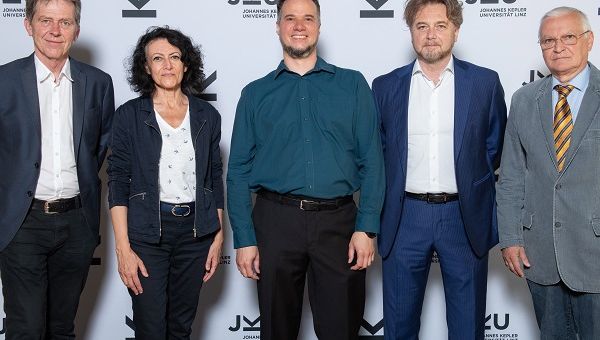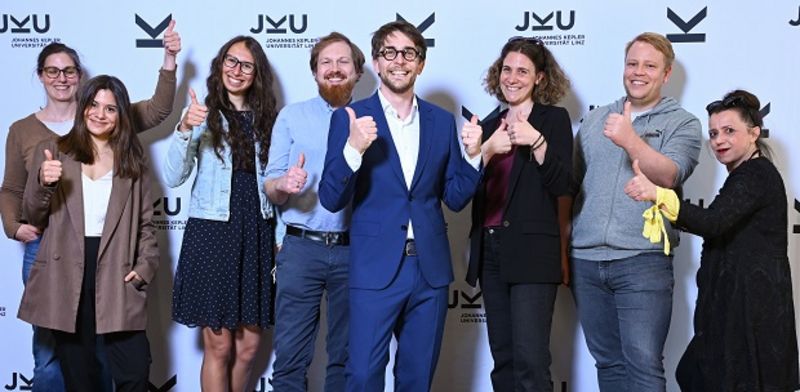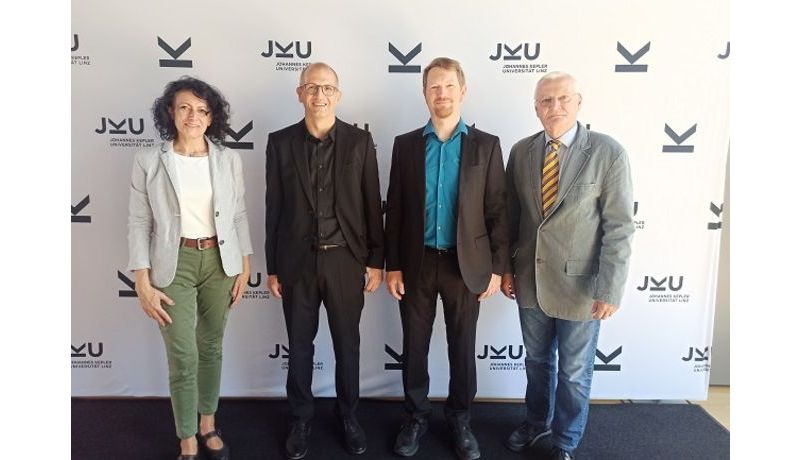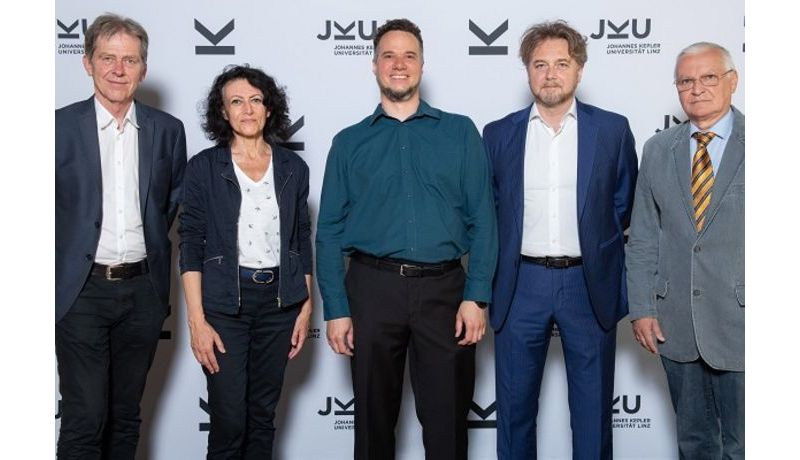Once again, traditional inaugural lectures by new professors at the Faculty of Social Sciences, Business & Economics and at the Faculty of Engineering & Natural Sciences took place earlier this month.

Univ. Prof. Claudio Biscaro, PhD (Institute for Human Resource Management) will open the inaugural lecture series in May at the JKU’s Ceremony Room on Monday, May 2, at 4:00 with his inaugural lectured titled "Organizing Through Language. Exploring the Power of Metaphors, Frames, and Narratives in Various Folds of Organizing". As language is a key tool when it comes to organizing social activities, Biscaro will talk about the power of language at organizations and how language can be applied during various social activities to bring about change (ranging from science labs and public debates to online forums) or maintain the status quo.
Univ.-Prof. Julian Reiss, PhD (Institute of Philosophy and Scientific Method) will follow with his inaugural lecture titled "Wissenschaftstheorie als Philosophie der Lebenskunst". Philosophy of science focuses on science’s preconditions, methods, and objectives, how knowledge is acquired, and science’s role in society. Reiss’ lecture will show that it can do much more than that, namely it can lay the groundwork to support a general life philosophy - a guide to happiness.
New professors at the Faculty of Engineering & Natural Sciences will hold their inaugural lectures on Monday, May 9. Univ. Prof. Bernhard Sonderegger (Institute for Engineering Materials-Metals and Alloys) will hold his inaugural lecture titled "What is the Link between a Raindrop and the Strength of a Metal?", discussing the link between universal, physical concepts and contemporary industrial applications in materials science.
Univ. Prof. Mario Waser (Institute of Organic Chemistry) will follow with his inaugural lecture titled "Chiral Ammonium Salt Organocatalysis", providing an overview of the last two decades of research in the field of asymmetric organocatalysis. Asymmetric organocatalysis is a powerful, widely applicable catalysis concept at home both in academia and in the field of industrial chemistry (i.e. the pharmaceutical chemistry). The 2021 Nobel Prize in Chemistry also recognized its general importance.
Univ. Prof. Markus Schedl (Institute for Computational Perception) held his inaugural lecture titled "Fair Information Retrieval and Recommender Systems" on May 16, presenting approaches to help identify, quantify, and mitigate data and algorithmic biases in an effort to create fair search and recommender technologies that do not systematically discriminate against certain individuals and groups over other individuals and groups.
Univ. Prof. Luca Gerardo-Giorda (Institute of Mathematical Methods in Medicine and Data-Based Modeling) followed with her inaugural lecture titled "Digital Twins and Beyond: When Mathematics meets Medicine". In support of diagnostics, an increasing number of physicians are using computer models. Biomedical problems are, however, extremely complex and require the joint efforts of mathematicians, biomedical engineers, and physicians.
Learn more about the inaugural lectures by new professors at the Faculty of Social Sciences, Economics & Business:
Learn more about the inaugural lectures by new professors at the Faculty of Engineering & Natural Sciences:











